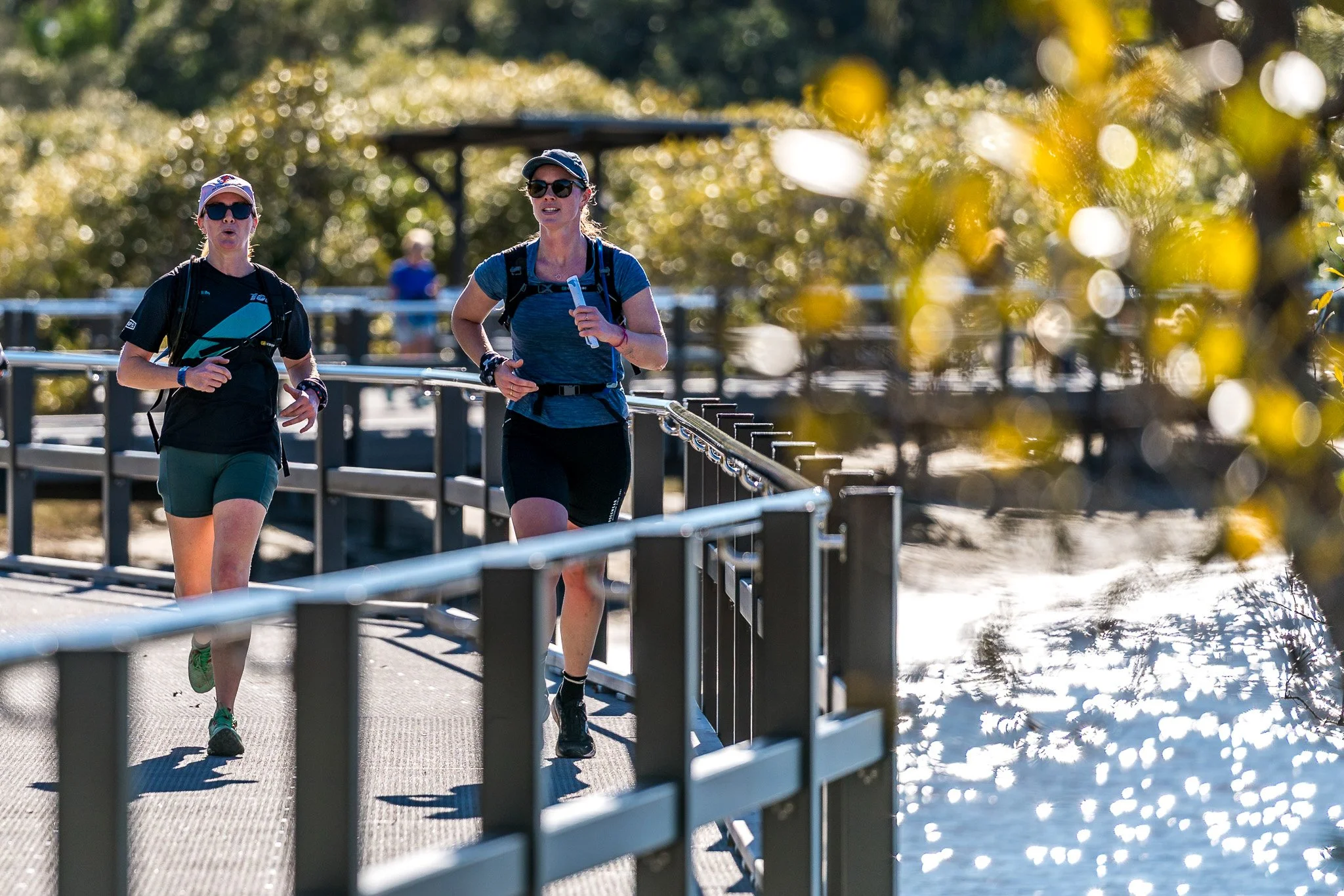Grab a snack and go!
6-Hour Adventure Race Nutrition Guide
Shorter adventure races (around 6 hours) are fast-paced, but still long enough that nutrition can make or break your race. While you won’t need as much variety or “real food” as in a 24-hour event, it’s still important to eat steadily and avoid bonking.
The focus here is on portable, easy-to-eat carbs, with a few extra protein/fat options for satiety. You don’t need transition meals, but it’s smart to keep a small stash of backup food in your TA box.
Carried Food (On the Move)
| Category | Examples | Notes |
|---|---|---|
| Carbs | Energy gels, chews, muesli bars, small sandwiches (PB & jam, Vegemite, honey), dried fruit (sultanas, figs, dates, mango) | Quick, light fuel for shorter duration |
| Protein | Jerky, Babybel cheese, nut butter squeeze packs | Helps steady energy but less critical in 6hr races |
| Fats | Trail mix (nuts, seeds, choc chips), coconut bars | Dense calories, small amounts go a long way |
| Electrolytes | Drink mix sachets, salt tablets/chews | Hydration support, especially in hot weather |
Transition Area (TA) Backup Food
You probably won’t stop long, but it’s worth having:
A sandwich or two (quick morale boost if needed).
A banana or orange.
A small “comfort snack” (cookie, chocolate).
Example 6-Hour Fuel Plan
For a 6-hour event, aim for 200–250 calories per hour. That’s around 1 gel or bar per hour, plus a bit of variety to keep you feeling good.
Example pack:
2–3 muesli bars.
2 energy gels or chews.
1–2 small sandwiches (cut in halves).
A small bag of dried fruit or trail mix.
1 electrolyte sachet.
Key Tips
Start early: Begin eating in the first 30 minutes, even if you don’t feel hungry.
Keep it simple: 6 hours is short enough that gels, bars, and sandwiches cover most needs.
Don’t overpack: Bring slightly more than you think you’ll need, but not a full day’s worth.
Hydrate smart: Drink steadily and use electrolytes if it’s hot or humid.
Next Steps
For a 6-hour race, keeping nutrition simple, steady, and accessible will prevent energy crashes and keep you moving fast all the way to the finish line.
← Back to Nutrition Guide
References
Costa, R. J. S., Hoffman, M. D., & Stellingwerff, T. (2019). Considerations for ultra‑endurance activities: Part 1 – nutrition. Research in Sports Medicine, 27(2), 166–181.
Craddock, J. C., Walker, G., Chapman, M., Lambert, K., & Peoples, G. E. (2025). The diet quality of ultramarathon runners taking part in an Australian event: A cross‑sectional study. Nutrients, 17(3), 485.
Zaryski, C., & Smith, D. J. (2005). Training principles and issues for ultra-endurance athletes. Current Sports Medicine Reports, 4(3), 165–170.
Knechtle, B., & Nikolaidis, P. T. (2018). Physiology and pathophysiology in ultra-marathon running. Frontiers in Physiology, 9, 634.








